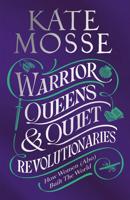Publisher's Synopsis
This historic book may have numerous typos and missing text. Purchasers can download a free scanned copy of the original book (without typos) from the publisher. Not indexed. Not illustrated.1853 Excerpt: ... CHAPTER XV. Wellington--A charmed life in battle--His feeling conduct towards an ex-Aid-de-Camp--Discipline of the army--Junot's opinion of it. We have now brought our narrative to the period when the services of the Duke were no longer required abroad, but we cannot conclude this brief sketch without giving a few anecdotes characteristic of the kind-heartednesss and decision of the great man. Our readers are probably aware that, except upon one occasion, Wellington escaped being wounded. At Orthez, however, his Grace received a severe contusion upon his hip bone from a spent ball, which prevented his directing in person, the last movements of his army upon that day; but he did not leave the field until Soult had sounded a retreat. In this engagement the present Duke of Richmond, then Earl of March, was most dangerously wounded in leading his company of the 52nd Light Infantry, to attack the left of the height on which the right of the enemy stood. The wound was pronounced to be mortal; and when the surgeon, the present Dr. Hair, under whose care Lord March had been placed, was called in to attend the Duke, his Grace's first inquiry was after the young nobleman, who for many years had served upon his personal staff, and who had been present with him at the battles of Busaco and Fuentes D'Onor; the storming of Cuidad Rodrigo, and Badajoz; battles of Salamanca, Vittoria, Pyrenees, first storming of St. Sebastian, action at Vera. Dr. Hair in reply stated, that although the wound was severe, there was still a gleam of hope, as he had witnessed similar cases, where the sufferers had recovered. The Duke's next anxiety was to be sufficiently recovered to resume in person the pursuit of the enemy on the following morning, and expressed a fear that the stiffness occa..
![Three Years With the Duke or Wellington in Private Life. By an Ex-Aid-De-Camp [W.P. Lennox].](/jacket/500x500/9780217975605.jpg)





